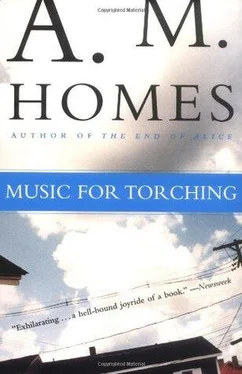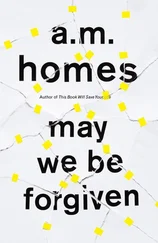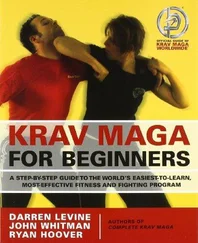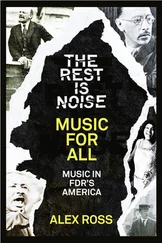"Is Mom all right?" Her father rarely calls unless there's a problem.
"She told me to tell you for myself how nice it was to see you and what beautiful boys you have."
"Where is she?" Elaine can't help but think something must be wrong.
"Gallivanting," her father says.
"Tell her to call me when she comes in," Elaine says.
"I don't have to tell her, she'll do it automatically. Your mother is entirely predictable and I never can tell what she's going to do next, that's what keeps her beautiful. She's always a surprise."
"Okay, Dad," Elaine says, having heard enough. "I'll talk to you later."
While she's got the phone in her hand, she calls Joan to thank her. For what-food poisoning? "It was so nice of you," Elaine says. "Such a warmhearted gesture."
"It was a good idea, I'm glad I thought of it," Joan says.
Elaine's Call Waiting beeps. "That's my other line-gotta go."
It's Bud Johnson again. "I had a break between classes. I thought I'd try once more. Is this a good time?"
"It's fine," Elaine says.
"I went over your tests." He speaks with the seriousness of a specialist.
She holds her breath waiting for the diagnosis, waiting to hear that she has cancer or some other kind of career-counseling failure.
"Well," he says, hedging, "I think the results explain why you're so unhappy in the house all day, all alone."
"Yes," Elaine says, still waiting.
"You're a people person," he says.
She's still waiting, thinking there's more.
"People make you happy. You feel better when you're with people. Yes?" Bud says.
"Yes," Elaine repeats, giving Bud Johnson's word enormous weight. "That makes sense." She doesn't like to be left alone. When Paul and the boys leave in the morning, she feels as though she's under house arrest, they are free to go and she has detention. "I like people."
"I thought so," he says proudly. "Should we meet again?" he asks. "Should we put our heads together and talk about where to go from here?"
"Sure," she says. "Why not?" She won't say no to anything.
"How about Wednesday afternoon?"
Elaine hangs up. She has to step outside again. Once more, she is in a whirl, a dangerous spin. With the regularity of a cuckoo clock, she steps out onto the kitchen steps. Every hour there is more light, things glow as though the intensity of the day is being turned up; the grass is fluorescent green, what's left of the geraniums are a vibrant red, and the forsythia along the driveway is spilling Technicolor yellow across the gravel. Elaine thinks she smells honeysuckle. She remembers, as a child, plucking the flowers and sucking syrup.
It is getting hot out. Hot and humid. The men in the backyard are hammering, hard and fast, working to get as much done as they can before it gets too hot, before something happens. There is the threat of a storm later. She knows. She read it in the paper.
Elaine wanders from the driveway to the curb. She looks down the sidewalk-the concrete footpath cuts through the landscape, stretching out in front of her for miles.
"Don't go anywhere," Mrs. Hansen calls from across the street. "I'm on my way over."
Self-improvement. A renovation of the soul. Paul is on his way to work. He wants to be a better person. He wants not to run, not to cave in under pressure, not to sweat the small stuff; he wants to live without fear, not in a constant state of inexplicable panic. Perspective and priority, efficiency and competency. He is always tripping over his own feet. He is his own worst enemy. He wants to do better.
And he wants not to hate Elaine.
Why is he such an asshole? What does he get out of it? Is there pleasure in pulling the rug out from under? Does it make him look bigger, better? What does it mean to cripple yourself, your wife, and your children with bitterness, with spite, with envy, with the overwhelming energy of your anxiety? Does he want them to fail? Will that make him feel good? Will it make him feel safer if they never pass him, if they're never more than he is? Isn't the goal to raise children that have more and do more than you? Why not inspire them, elevate them, encourage them? It has to be easier.
Sammy spilled his milk-it was Paul's fault. Paul was causing trouble. Everything is Paul's fault. He takes a breath. He coaxes and coaches himself. It's fine, he tells himself, it's better than you think. The house is getting fixed, the weekend was nice, the family is back together. And despite how strange things have been, Elaine appears to feel somewhat warmly toward him. She appears to have hope. They are gathering a second wind, a new lease on life.
He continues talking to himself. It's Monday morning, you're on the train, on the way to work. You ate pancakes for breakfast, you walked your boys to school, you had a good time, you played a game they invented-You Call It.
They started off in a line arranged by height, shortest to tallest, with Sammy in the lead.
"Age," Daniel called out. "Oldest first," and they switched places, filing themselves accordingly.
"Funniest walk," Sammy yelled, and they did their odd walks, waddling down the sidewalk like a family of palsied ducks.
"IQ," Daniel called, and they stumbled out of order, weaving stupidly, crashing into each other, all of it part of the joke. Sammy laughed wildly.
"Fattest to thinnest," Daniel called, and Paul took the lead.
"Bluest eyes," Paul said, and Sammy stepped in front.
Father and sons, brothers, boys, men.
"Don't play without me," Sammy said when they dropped him at school.
"Wouldn't think of it," Paul said.
Daniel and Paul stood at the bottom of the school steps, watching Sammy go in, and then they walked on. There were things Paul wanted to ask Daniel: Do you really think Meaders is something special? Does Willy strike you as a little weird? How serious is the Scouting thing? And what's the deal with you and the fat girls? A thousand things he wanted to know, but he asked nothing, opting to savor the moment, the relative calm.
On the train, the palm kisser, Mr. Mental Candy, comes up from behind and sits down next to Paul.
"Did you eat your candy?"
"Most of it."
"Favorite color?"
"Couldn't really tell the difference," Paul says.
"Try two of something, that'll show you. Want some more?"
Paul puts out his hand. "Is it addictive?"
"Only if you like the way it makes you feel," the palm kisser says, filling both of Paul's hands.
"What's that mean?" "You should come visit me sometime. Take a dip in my pool."
"Out in the country?" Paul asks, sliding the pills into his pocket.
"Or at the office. I'm in the water a lot. It helps me think. I tread water while I make decisions. I like to stay fluid, liquid, calm. I have a lap pool in my office-we're on the first floor."
"Any thoughts on desk chairs?" Paul asks, seeing that the guy obviously has a certain flair for things.
"Some are better than others," the man says.
"What do you sit on?"
"A cushion," the man says.
Paul nods. Why did he ask?
The train pulls into the 125th Street station.
"We're almost there," Paul says.
"You are your own beginning. Every day, every hour, every minute, you start again. There is no point wishing you were someone else, you are who you are-start there," the palm kisser offers.
"I was just thinking the same thing," Paul says.
The palm kisser looks at him, checking to see if Paul is teasing.
"Seriously," Paul says. "Something right along that line-odd, isn't it?"
"Or not," the palm kisser says.
The train pulls in. "Grand Central Station, New York City," the conductor announces.
The palm kisser bends. Paul thinks he's going to kiss Paul's hand again, maybe put his head in Paul's lap. Paul pulls away, abruptly. The palm kisser bends and picks a quarter off the floor. "Accept the things you find," he says.
Читать дальше












